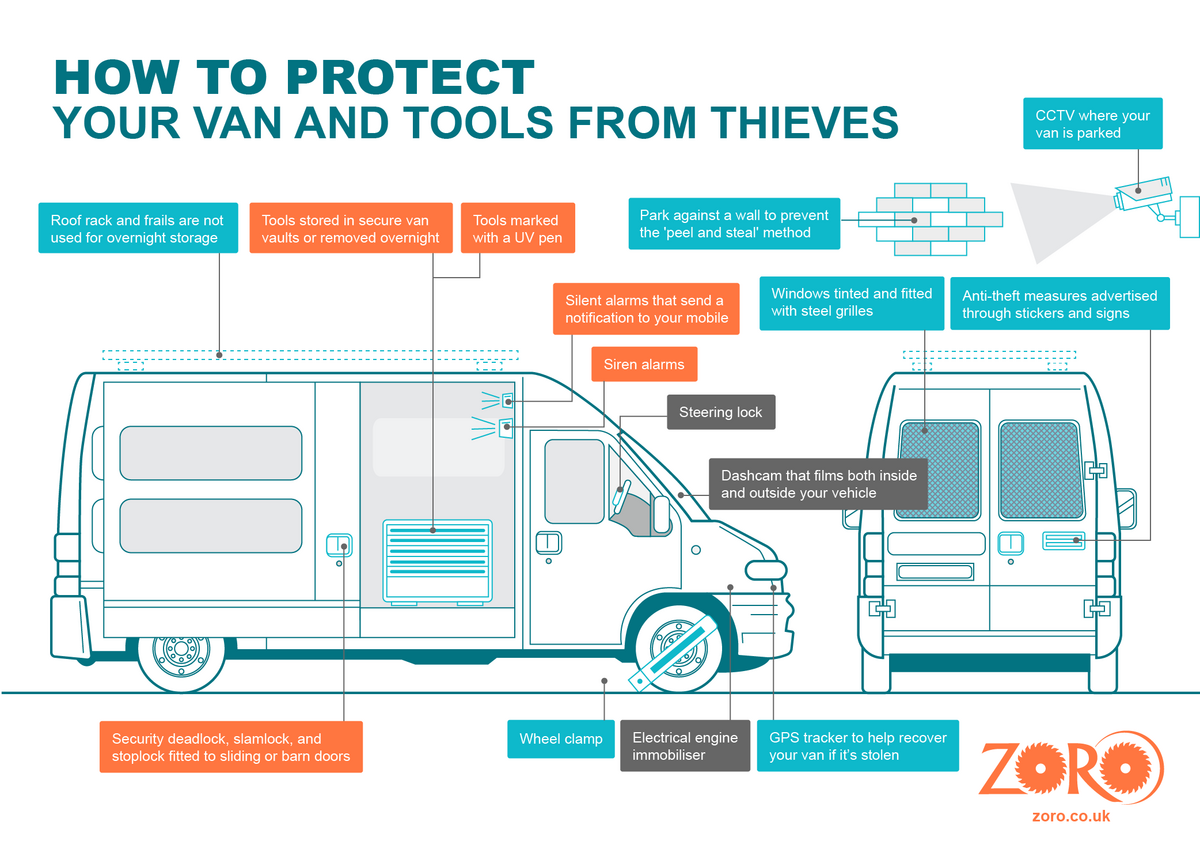Theft of a vehicle, or theft of items left in a vehicle can have serious consequences for small business owners and tradespeople.
The Home Office indicates van crime is on the rise, with more than 1 in 3 tradespeople in 2019 hit by van thieves and an average individual cost of £3,000.
Since November 2018, a campaign called noVANber has petitioned the Government to examine ways of preventing vehicle theft.
As thieves become more sophisticated and the average value of tools stolen increases, tradespeople are sharing their ideas on how to be aware of preventative measures and deterrents which work. The expense of preventative measures don’t have to be prohibitive but cost can’t always be calculated in pounds and pence.
The Home Office said: “The Government understands the distress and disruption that this type of crime causes and the effect it has on victims, including the impact on people who rely on the tools of their trade to earn a living.”
Home Office statistics indicate over the last five years, there has been a 48.7 per cent rise in vehicle theft. Loss of a vehicle and/or tools is an unforeseen expense, pushes insurance premiums up and can lead to an inability to complete projects, which is devastating to small business owners.
The noVANber petition calls for a review of current vehicle theft prevention methods, tighter regulation when it comes to the selling of second-hand tools and greater minimum fines for those convicted of tool theft.
However, theft of tools is just one of the issues caused by thieves – breaking into vans causes damage and small business owners who aren’t always able to afford insurance can be out of pocket and unable to work.
‘Steal and peel’ during which looters use their knees to apply pressure to van doors and remove thousands of pounds worth of tools in minutes is on the rise. Also escalating is the removal of catalytic converters for precious metals, smashed windows, and using screwdrivers on locks.
In response to the noVANber petition, which garnered more than 40,000 signatures, the Government said: “The Theft Act 1968 provides a maximum penalty of seven years’ imprisonment for this type of offence.
“In addition, the Act provides sufficient powers to tackle the threat of people going equipped to steal, with maximum penalties of three years’ imprisonment available.”
Tradespeople have taken to social media to share their tips on how to protect vehicles and livelihoods.
Parking next to pillars, in view of CCTV and below streetlamps where possible are top of the list, followed by clearly marking tools with a UV pen, permanent marker or chemical etching, along with installing van guards and storage volts.
Unfortunate van owners have also shared images via the noVANber hashtag to show how their vehicles have been broken in to, in an attempt to help other owners, protect their tools.
Zoro UK supply tools for the automotive, construction and industrial markets.
Chris Matenaers, Marketing Director for experts in hand tools, power tools and PPE, Zoro UK said: “We often find our customers want better protection for their tools. NoVANber is an excellent awareness-raising exercise to try and prevent tool theft.”








